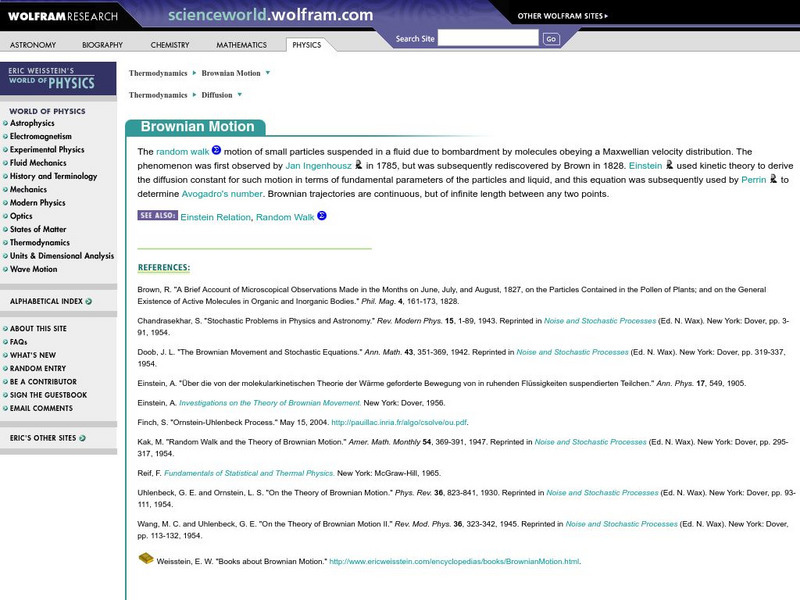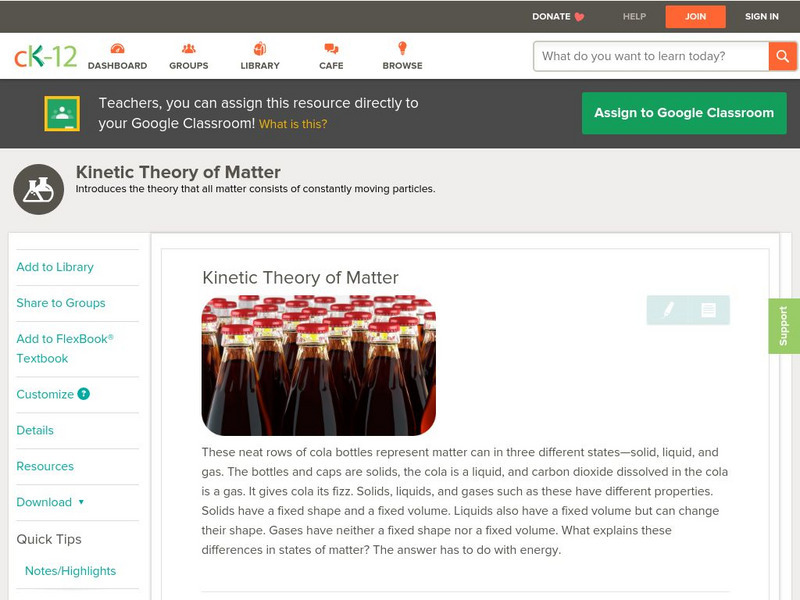Science Buddies
Science Buddies: What's the Fastest Way to Cool a Soda?
When you are craving an ice cold drink of soda, the last thing you want is to be stuck with a bunch of soda cans at room temperature. This fun science experiment sends you on a discovery to find the fastest way to cool soda with...
Wolfram Research
Wolfram Science World: Brownian Motion
This site from ScienceWorld gives a brief description of Brownian motion. It also goes on with a detailed series of formula derivations utilizing calculus. Links to related topics and definitions are given.
Chem Tutor
Chem Tutor: Chemistry: States of Matter
This lesson focuses on the states of matter: solids, liquids, and gases. It also discusses the Kinetic Theory of Matter, Thermodynamics, Triple point, Phase Change Graphs and the Heating Curve of Water. It provideds adrawing of a heating...
CK-12 Foundation
Ck 12: Physical Science: Kinetic Theory of Matter
[Free Registration/Login may be required to access all resource tools.] Kinetic theory of matter and how kinetic energy relates to the state of matter.
CK-12 Foundation
Ck 12: Chemistry: Kinetic Theory of Matter
[Free Registration/Login may be required to access all resource tools.] Kinetic theory of matter and how kinetic energy relates to the state of matter.
CK-12 Foundation
Ck 12: Fifth Grade Science: Physical Science: Solids, Liquids, and Gases
[Free Registration/Login may be required to access all resource tools.] Explains how to describe matter in the solid state, about the properties of liquid matter and gases, and what the relationship between energy and states of matter is.
University of Sydney (Australia)
Thermal Physics Module: Ideal Gases [Pdf]
A molecular model of a gas is introduced and explained. Assumptions behind the ideal gas law are presented. The ideal gas law is stated. Charles' law and Boyle's law are derived from the ideal gas law.






